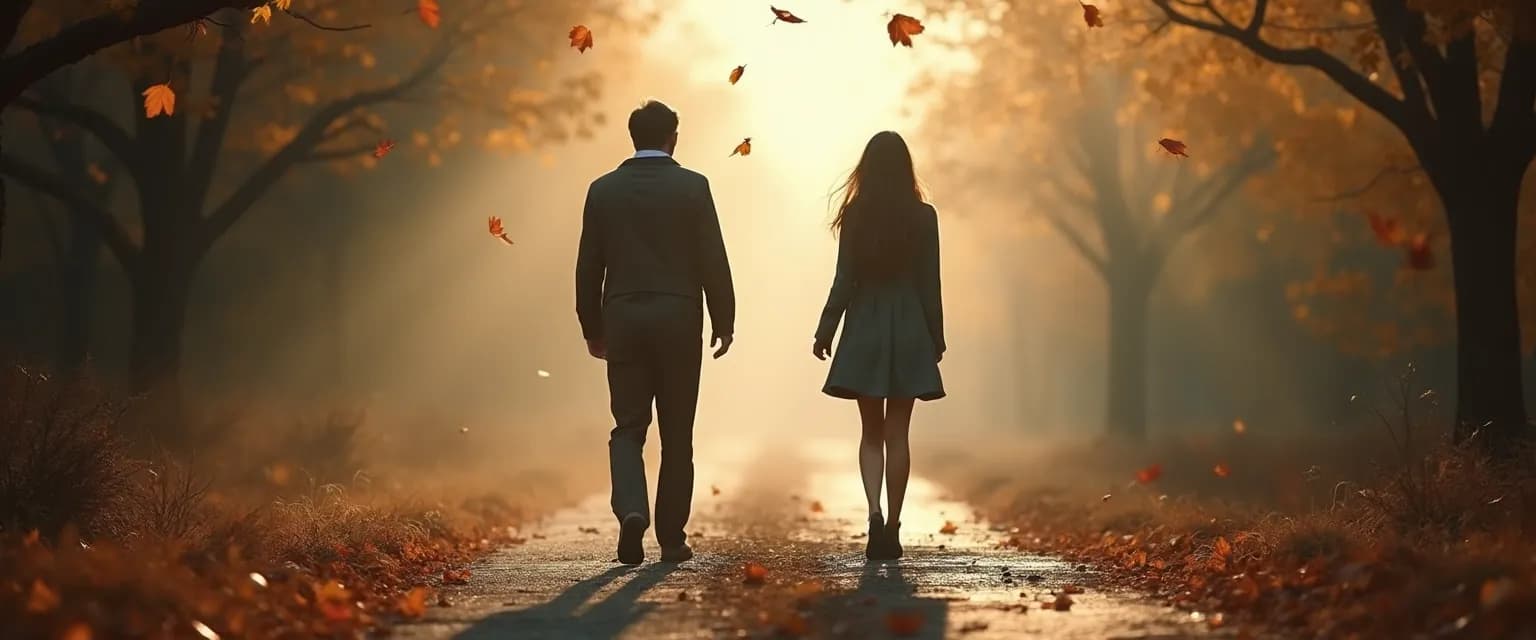The Grief of Losing a Friendship: 5 Healthy Ways to Process Your Emotions
Ever notice how no one brings casseroles when a friendship ends? The grief of losing a friendship often gets minimized in our society, yet it can hurt just as deeply as other significant losses. That empty space where your friend used to be—the inside jokes, shared memories, and mutual understanding—leaves a peculiar kind of ache that's hard to describe to others. Whether the friendship ended with a dramatic fallout or simply faded away, the emotional aftermath deserves proper acknowledgment and care.
The grief of losing a friendship comes with its own unique challenges. Unlike romantic breakups, there's no widely accepted script for processing this loss. You might find yourself questioning whether you're overreacting or wondering why you can't just "get over it." But here's the truth: your feelings are valid, and having healthy strategies to work through them matters tremendously for your emotional wellbeing and future relationship building.
Understanding the Grief of Losing a Friendship: Why It Hurts So Much
The grief of losing a friendship triggers genuine neurological responses. When you form close bonds, your brain releases oxytocin—the same "bonding hormone" associated with parent-child relationships and romantic love. When these connections break, your brain experiences it as a form of rejection, activating the same pain centers as physical injuries.
Common emotional reactions when processing the grief of losing a friendship include denial ("we'll reconnect eventually"), anger ("after everything I did for them!"), bargaining ("if I had just been more supportive..."), depression, and eventually, acceptance. These stages aren't linear—you might bounce between them or experience several simultaneously.
What makes friendship grief particularly challenging is its ambiguous nature. Society provides clear rituals for romantic breakups and mourning deaths, but friendship endings often lack closure. You might question whether the friendship is truly over or if you're allowed to feel devastated. This uncertainty creates additional stress during an already difficult emotional process.
5 Healthy Ways to Process the Grief of Losing a Friendship
1. Acknowledge Your Feelings Without Judgment
The first step in processing the grief of losing a friendship is giving yourself permission to feel whatever emotions arise. Name them specifically: disappointment, betrayal, sadness, relief, or confusion. Research shows that labeling emotions helps reduce their intensity and gives you more control over your response. Try this: When a wave of emotion hits, simply state, "I'm feeling [emotion] about losing this friendship, and that's okay."
2. Create a Personal Closure Ritual
When friendships end without clear closure, creating your own ritual helps your brain process the transition. This might be writing a letter you never send, having a small ceremony where you review photos or mementos, or simply taking a moment of silence to honor what the friendship meant to you. The key is marking the ending in a meaningful way.
3. Reframe the Friendship Narrative
How you tell the story of your friendship impacts your healing. Instead of viewing it as a failure ("I wasn't good enough"), try reframing it as a chapter ("This friendship served an important purpose during that time in my life"). This perspective honors the value the relationship had while acknowledging that people and needs change over time.
4. Practice Self-Compassion
Self-criticism often accompanies the grief of losing a friendship. Combat this by speaking to yourself as you would a good friend experiencing loss. Research shows that self-compassion speeds emotional recovery and builds resilience during difficult transitions. Try placing a hand on your heart and saying, "This is a moment of suffering. Many people feel this way. May I be kind to myself right now."
5. Gradually Reinvest in Other Connections
While it's tempting to isolate when hurt, gently redirecting your social energy helps heal the grief of losing a friendship. Start small—text an acquaintance, join an online community with shared interests, or deepen existing relationships. This isn't about replacing your friend but about reminding yourself that meaningful connection remains possible.
Moving Forward After the Grief of Losing a Friendship
Healing from the grief of losing a friendship happens gradually. You'll know you're making progress when you can think about the friendship with more neutrality and less pain. Moments that once triggered intense emotion may become gentler memories.
The valuable lesson in friendship loss is what it teaches us about ourselves—our needs, boundaries, and values in relationships. Many people report that after processing the grief of losing a friendship, they form deeper, more authentic connections moving forward, equipped with clearer understanding of what they need from relationships.
Remember that honoring your grief doesn't mean dwelling forever. It means giving proper recognition to something that mattered deeply, allowing that recognition to transform into wisdom that shapes your future connections in meaningful ways.




